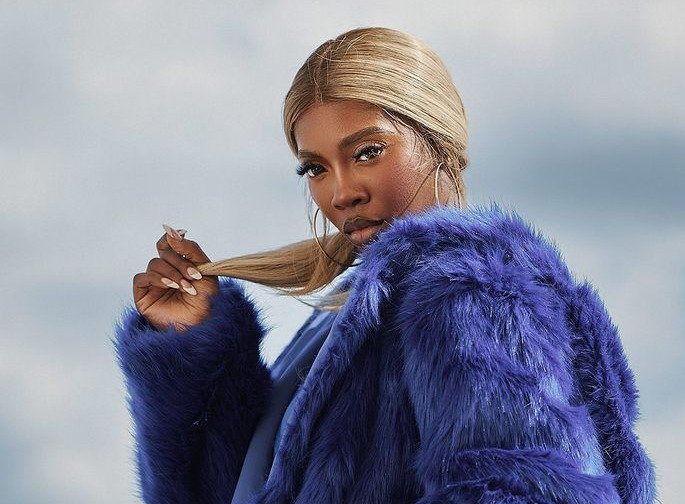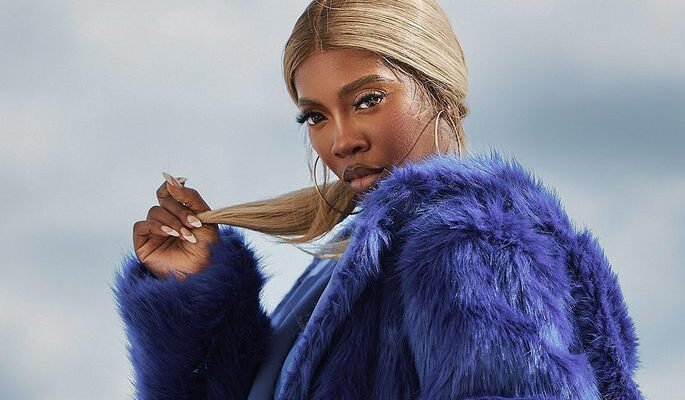
When it comes to successful music promotion in Nigeria, establishing a long term strategy is ideal.
Music promotion plays a crucial role in the success of any artist, and Nigeria’s vibrant music scene is no exception.
While the music promotion landscape may differ from country to country, the fundamental principles and best practices remain the same. It is what we refer to as the ‘standard practice’.
To excel in the Nigerian music industry, artists need to establish a well-defined and long-term promotion strategy.
In this guide, we will explore the key aspects of music promotion in Nigeria and provide valuable insights on how to promote music like a professional.
From effective distribution and publishing strategies to leveraging pre-save campaigns and securing placements on popular playlists across various digital streaming platforms, we will cover the essential steps to elevate your music career in Nigeria.
Whether you’re an aspiring artist looking to break into the industry or an established musician aiming to expand your fanbase, understanding the intricacies of music promotion in Nigeria is essential.
By implementing a strategic approach and utilizing the available resources and platforms, you can increase your visibility, attract a wider audience, and establish a successful and sustainable music career in this dynamic and competitive market.
So, let’s delve into the world of music promotion in Nigeria and discover the proven tactics that will help you promote your music like a professional, ultimately propelling your career to new heights in this thriving musical landscape.
However, in the first instance what is music promotion?
What is music promotion?
Music promotion is simply all those activities geared towards the monetization of music, marketing and branding of the artist.
It is a wide range of activities aimed at generating revenue from music, as well as establishing effective marketing strategies and building a strong brand for artists.
Monetization of music refers to the process of generating income from musical works. This includes various revenue streams such as physical and digital sales, streaming services, synchronization licensing (music in films, TV shows, commercials), performance royalties (from live performances and radio airplay), and merchandise sales.
Marketing in the context of music promotion involves the strategic planning and implementation of activities to increase the visibility, reach, and engagement of an artist’s music.
It includes creating awareness about the artist and their music, targeting specific audiences, and developing promotional campaigns across multiple platforms.
Effective marketing involves understanding the target audience, crafting compelling narratives around the artist and their music, utilizing social media platforms, engaging with fans, collaborating with influencers, and leveraging traditional media outlets.
The goal is to create a buzz, drive interest, and ultimately increase consumption and monetization opportunities.
While branding plays a crucial role in music promotion as it shapes the artist’s identity, image, and perception among the audience.
It involves establishing a distinct and recognizable persona, developing a unique visual style, and maintaining consistency across various marketing channels.
Branding helps artists differentiate themselves from competitors, build a loyal fan base, and foster emotional connections with their audience.
Successful branding contributes to increased recognition, consumer trust, and long-term career sustainability.
Meanwhile, the key point to take home from this blog post is that the promotion of any musical release, be it a single, EP or an album, must begin with the distribution of music – a crucial step in professional music marketing.
You can read more of and learn why music distribution is the fundamental aspect of music promotion and how best to release music like a pro.
However, for an artist to release music effectively, gain exposure in the global music market and establish a million dollar brand, the artist must draw up a long term marketing strategy especially as an independent artist who has got no record label structure.
That brings to yet another question: how do I make it as an independent artist?
How do I make it as an independent artist?
1 Hire an artist manager:
Hiring an artist manager is often considered a crucial long-term strategy for successful music promotion as an independent artist.
This individual plays a significant role in managing various aspects of an artist’s career, helping them navigate the music industry, and ensuring their creative and promotional efforts are not hindered by legal or administrative distractions.
For artist management and music promotion inquiries, reach us on WhatsApp +2349073423257
One of the primary responsibilities of an artist manager is to identify and bring together a team of resourceful individuals who can contribute to the artist’s success. This team typically includes professionals such as booking agents, publicists, lawyers, accountants, and other industry experts.
By carefully selecting these team members, the manager ensures that the artist has access to the right resources and expertise needed to maximize their potential.
Planning releases, tours, and brand promotion is another vital aspect of an artist manager’s role. They work closely with the artist to develop and execute effective strategies for releasing music, organizing tours, and promoting the artist’s brand.
This involves coordinating with record labels, distributors, concert promoters, and other industry professionals to ensure that the artist’s music reaches the right audiences and generates the desired impact.
In addition to these operational responsibilities, an artist manager also acts as a protector for the artist.
The manager is knowledgeable about the legal aspects of the music industry and can safeguard the artist’s interests by identifying potential legal issues and working to mitigate them.
This includes reviewing contracts, negotiating deals, and providing guidance on copyright, licensing, and other legal matters.

By handling these legal aspects, the manager allows the artist to focus on their creative pursuits without being distracted or derailed by legal complications.
Overall, an artist manager serves as a trusted advisor and advocate for the artist. They provide valuable support, guidance, and expertise to help the artist navigate the complex and competitive music industry.
By handling various administrative tasks, coordinating with industry professionals, and protecting the artist’s interests, the manager plays a critical role in the long-term success and sustainability of an independent artist’s career.
You can read more on how to find a resourceful artist manager who can help the artist to achieve career set objectives.
It is crucial to consider hiring a manager from the very beginning of an independent artist’s musical journey.
2 Adopt the rainfall music release strategy:
The rainfall music release strategy is an effective long-term marketing plan that focuses on consistently releasing and promoting music at regular intervals, typically every 8 weeks, over a span of one or two years.
This strategy encompasses various types of releases such as singles, EPs, albums, or even covers of popular songs. The significance of this approach lies in several key aspects.
Firstly, the rainfall music release strategy helps to maintain a steady presence and engagement with the audience. By consistently putting out new music, you create a sense of anticipation and excitement among your fans.
They will look forward to each release and become accustomed to the regularity of your output. This regularity enhances your brand visibility and keeps you at the forefront of their minds, potentially leading to increased fan loyalty and support.
Secondly, frequent releases allow for experimentation and creative growth. By releasing music at shorter intervals, you have more opportunities to explore different styles, genres, and concepts.
This experimentation can help you discover what resonates best with your audience and allows you to evolve and adapt your sound. Moreover, it provides a platform to showcase your versatility as an artist, whether through original compositions, collaborations, or reinterpretations of popular songs.
Check out recommended Spotify Afrobeat playlist 👇
Additionally, the rainfall music release strategy enables you to maintain momentum and build momentum. Consistently releasing new music generates a continuous buzz around your work.
It keeps you active in the industry, attracting attention from music platforms, media outlets, and potential collaborators.
This increased visibility can lead to opportunities such as playlist placements, interviews, reviews, and even live performance invitations. The more frequently you release music, the greater your chances of gaining traction and expanding your reach.
Moreover, this strategy aligns with the current music consumption habits and platforms. In today’s digital age, listeners have access to an overwhelming amount of music.
Releasing music regularly allows you to cut through the noise and maintain a presence in the streaming platforms and social media feeds where your audience spends their time.
By consistently appearing in their recommended playlists, new release sections, or social media timelines, you increase the likelihood of attracting new listeners and expanding your fanbase.
Furthermore, the rainfall music release strategy also helps to create a sense of progression and narrative in your artistic journey.
Releasing music periodically allows you to tell a story or convey a theme through your releases. It gives you the opportunity to showcase your growth as an artist and take your listeners on a musical journey.
This narrative can be reinforced through consistent branding, visuals, and messaging associated with each release, creating a cohesive and immersive experience for your fans.
3 Build your brand
Building a brand as an independent artist is incredibly important for long-term music promotion in Nigeria.
It involves creating a unique identity for yourself and capturing the attention of your target audience. The ultimate goal is to make people fall in love with you and your music.
A brand encompasses various elements that define who you are as an artist. This includes your musical style, image, personality, and the overall vibe you convey.
It’s essential to be consistent in these aspects so that people can easily recognize and associate them with you.
To effectively market your brand, it’s crucial to explore different strategies and keep your audience engaged.

One effective approach is to create headlines from time to time. This means generating buzz and excitement around your brand through various means.
For instance, you can release new music accompanied by intriguing teasers or announcements that build anticipation. This could involve sharing snippets of your upcoming songs, behind-the-scenes footage, or even cryptic messages that pique curiosity.
By creating a sense of anticipation, you can generate excitement and make people eagerly await your new releases.
Additionally, it’s important to leverage social media platforms and engage with your audience regularly. This includes posting updates about your music, sharing personal stories, and interacting with fans through comments and direct messages.
By staying active and connecting with your followers, you can cultivate a loyal fan base and strengthen their emotional connection with you as an artist.
Collaborations with other artists or participating in noteworthy events can also help generate headlines and increase your visibility as far as music promotion in Nigeria is concerned.
Partnering with established musicians or being featured in prominent music publications can attract attention to your brand and expose you to a wider audience.
Remember that building a brand is a long-term process, and it requires consistent effort and dedication.
By creating a strong identity, regularly engaging with your audience, and exploring strategies to make headlines, you can establish yourself as an independent artist and foster a loyal fan base that loves and supports your music.
4 Collaborate with other artists
Collaborating with other artists has become an essential long-term strategy for music promotion in Nigeria.
This approach provides opportunities to reach a new and wider audience, thus increasing an artist’s visibility and fan base.
However, it is crucial for artists to approach collaborations thoughtfully and strategically.
One aspect to consider when choosing a collaborator is their social influence. Collaborating with artists who have a significant social influence can greatly benefit an artist’s promotional efforts.
This influence can be measured by looking at the number of followers they have on platforms like Instagram, Facebook, and Spotify.
Social media platforms like Instagram and Facebook serve as important channels for artists to connect with their audience and promote their music.
Artists with a larger following on these platforms have a greater reach, allowing their collaborations to have a wider impact.
When evaluating a potential collaborator, it’s essential to assess the size of their social media following.
Another metric to consider is the monthly listeners on Spotify and followers.
Spotify is a popular music streaming platform that offers insights into an artist’s popularity and engagement.
By examining the monthly listeners of a potential collaborator, artists can gauge the level of interest and support they can bring to the collaboration.
The numbers, such as the number of followers on Instagram, Facebook, and Spotify’s monthly listeners, provide a tangible measure of an artist’s reach and influence.
Collaborating with artists who possess a substantial social media presence and a significant number of monthly listeners can potentially expose an artist to a broader audience and increase their chances of success. This definitely should form a long term strategy of music promotion in Nigeria.
5 Be more than an artist
An artist is someone who entertains people through various means. They are not only musicians, but also performers, models, and actors. Their job is to captivate the audience and engage them in different ways.
When we think of an artist, we often associate them with their music. However, being an artist goes beyond simply releasing songs.
They have to embody their brand and express themselves through visual storytelling.
This means they use their appearance, style, and image to convey a message or create an atmosphere that complements their music.
As performers, artists bring their music to life on stage. They use their voice, movements, and stage presence to entertain the audience and create a memorable experience.
They might dance, interact with the crowd, or put on a visually stunning show to make sure people have a great time.
Additionally, artists must model their brands, showcasing their unique style and fashion sense.
By doing so, they not only promote themselves but also inspire others with their looks.
This adds another layer to their entertainment value, as they become a source of inspiration and admiration for their fans.
Moreover, artists can explore acting, either in music videos or in other types of visual media. By acting, they tell stories that complement their music and allow their audience to connect with the emotions and messages conveyed in their songs.
This helps to create a deeper and more immersive experience for the listeners.
6 Release music like a pro
When it comes to releasing music like a professional, one of the most crucial steps is ensuring proper distribution.
Avoid the common mistake of uploading your music to local websites or platforms that do not guarantee copyright protection.
Instead, opt for reputable streaming platforms that can help safeguard your work.
To start, make sure your music is available on streaming platforms on the same day of release including free music download platforms, if you so desire.
By doing so, you protect your copyright and ensure that your work is properly recognized and accounted for.
Additionally, don’t overlook the importance of publishing your music. Publishing refers to the registration of your songs with a music publisher or a performing rights organization.
This step ensures that you don’t miss out on potential royalties when your music is played on the radio or in other public performances.
By taking these steps, you establish a solid foundation for releasing your music professionally.
You protect your rights, maximize your earning potential, and increase your chances of success in the music industry.
Remember, the key is to prioritize reputable distribution platforms and proper publishing to ensure your music reaches the right audience and generates the recognition it deserves.




